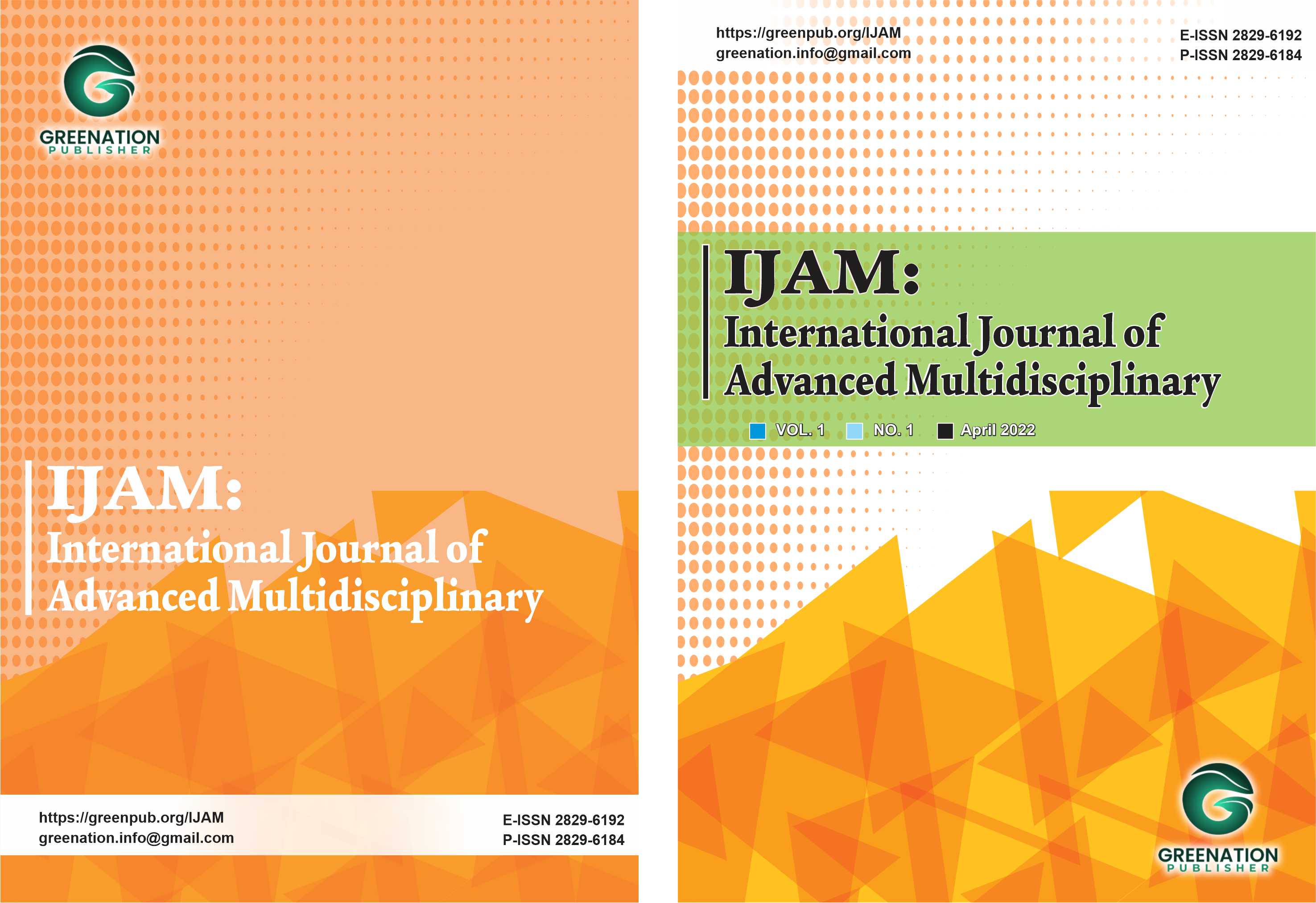Increasing E-Loyalty of E-Commerce Users Through E-Satisfaction and e-Trust
DOI:
https://doi.org/10.38035/ijam.v1i4.165Keywords:
E-Service Quality, E-Satisfaction, E-Trust, E-Loyalty, E-CommerceAbstract
This study aims to prove and analyze the effect of e-service quality on e-loyalty, both directly and indirectly through e-satisfaction and e-trust of e-commerce users. The unit of analysis used was e-commerce users (Tokopedia, Shopee, Bukalapak, Lazada, Blili) in the DKI Jakarta area. The method used was a quantitative method with a sample of 200 respondents, data processing using the structural equation model method. The results of the analysis show that e-service quality directly or indirectly has a positive effect on e-loyalty through e-satisfaction and e-trust. Other results show that e-satisfaction and e-trust are partial mediating on the effect of e-service quality on e-loyalty. However, mediating e-satisfaction on the effect of e-service quality on e-loyalty has the greatest influence, when compared to the direct effect of e-service quality on e-loyalty and the indirect effect through e-trust. The research implication was an increase in e-loyalty, especially an increase in purchase intention of e-commerce users was by increasing e-satisfaction, especially increasing convenience, where e-satisfaction can be increased if e-commerce companies were able to improve e-service quality, especially increasing fulfillment of e-users commerce.
References
Al-dweeri, R. M., Obeidat, Z. M., Al-dwiry, M. A., Alshurideh, M. T., & Alhorani, A. M. (2017). The Impact of E-Service Quality and E-Loyalty on Online Shopping: Moderating Effect of E-Satisfaction and E-Trust. International Journal of Marketing Studies, 9(2), 92. https://doi.org/10.5539/ijms.v9n2p92
Antarwiyati, P., Nurhakim, A. L., & Kusuma, H. (2010). Determinan Electronic Loyalty (e-Loyalty) Pada Website. Jurnal Akuntansi Dan Auditing Indonesia, 14(1), 1–21. Retrieved from file:///C:/Users/hp/Downloads/2245-2281-1-PB (1).pdf
Barkah, B., & Nabila, M. E. (2021). Pengaruh E-Service Quality, E-Trust, dan E-WOM Terhadap ESatisfaction Pengguna Aplikasi Shopee Di Kota Pontianak. Proceeding Seminar Bisnis Seri V, 269–277. Retrieved from https://pascasarjanafe.untan.ac.id/wp-content/uploads/2022/05/26.pdf
Cahyanti, A. A. A., Sudarmiatin, & Dhewi, T. S. (2022). Effect of E-Service Quality and E-Trust on E-Loyalty of E-Payment Through E-Satisfaction of Shopee pay Users). International Journal Of Humanities Education And Social Sciences, 2(1), 239–246.
Cyr, D., Bonanni, C., Bowea, J., & Ilsever, J. (2005). Beyond trust: Web site design preferences across cultures. Journal of Global Information Management, 13(4), 25–54. https://doi.org/10.4018/jgim.2005100102
Delgado-Ballester, E., & Munuera-Alemán, J. L. (2005). Does brand trust matter to brand equity? Journal of Product and Brand Management, 14(3), 187–196. https://doi.org/10.1108/10610420510601058
Hair, J.F., Black, W.C., Babin, B.J., & Anderson, R. E. (2010). Multivariate Data Analysis. Seventh Edition. Prentice Hall. Exploratory Data Analysis in Business and Economics. https://doi.org/10.1007/978-3-319-01517-0_3
Pasharibu, Y., Paramita, E. L., & Stephani, G. (2018). The effect of online customer experience towards repurchase intention. International Journal of Supply Chain Management, 7(5), 548–558.
Prasetyo, A. N., & Yusran, H. L. (2022). Pengaruh E-Service Quality Dan E-Trust Terhadap Repurchase Intention Melalui E-Satisfaction Pada Pengguna E-Commerce, 4(1), 137–151.
Puspita, A. M. D., Sudarmiatin, & Dhewi, T. S. (2022). The Effect of E-Service Quality on E-Customer Loyalty with E-WOM and Brand Image as Mediating Variables (Study on Shopee Food Consumers in Malang City). International Journal Of Humanities Education And Social Sciences (IJHESS) E-ISSN, 2(1), 2808–1765. Retrieved from https://ijhess.com/index.php/ijhess/
Romadhoni, B., Hadiwidjojo, D., & Aisjah, S. (2015). Relationship between E-Service Quality, E-Satisfaction, E-Trust, E-Commitment In Building Customer E-Loyalty: A Literature Review. International Journal of Business and Management Invention, 4(2), 1–9. Retrieved from https://www.ijbmi.org/papers/Vol(4)2/Version-2/A4220109.pdf
Setyowati, D., & Suryoko, S. (2020). PENGARUH E-SERVICE QUALITY TERHADAP KEPUTUSAN PEMBELIAN MELALUI E-TRUST SEBAGAI VARIABEL MEDIASI (Studi pada Pengguna Situs BukaLapak di Kota Semarang ). Jurnal Ilmu Administrasi Bisnis, 9(1), 251–260. https://doi.org/10.14710/jiab.2020.26331
Suprapti, S., & Suparmi. (2020). JKBM, 6(2), 240–255. https://doi.org/10.31289/jkbm.v6i2.3795
Widodo, A., Putra, F., Sukriyah, S., Nadeak, M., & Novitasari, D. (2022). The Role of e-Trust and e-Service Quality on e-Loyalty of e-banking Consumers in Tangerang. PINISI Discretion Review, 5(2), 301. https://doi.org/10.26858/pdr.v5i2.31938
Wierich, R., & Zielke, S. (2014). How retailer coupons increase attitudinal loyalty – the impact of three coupon design elements. European Journal of Marketing, 48(3/4), 699–721. https://doi.org/10.1108/ejm-01-2012-0030
Downloads
Published
How to Cite
Issue
Section
License
Copyright (c) 2023 Ayi Wahid, Vivi Afifah

This work is licensed under a Creative Commons Attribution 4.0 International License.
Authors who publish their manuscripts in this journal agree to the following conditions:
- The copyright on each article belongs to the author(s).
- The author acknowledges that the International Journal of Advanced Multidisciplinary (IJAM) has the right to be the first to publish with a Creative Commons Attribution 4.0 International license (Attribution 4.0 International (CC BY 4.0).
- Authors can submit articles separately, arrange for the non-exclusive distribution of manuscripts that have been published in this journal into other versions (e.g., sent to the author's institutional repository, publication into books, etc.), by acknowledging that the manuscript has been published for the first time in the International Journal of Advanced Multidisciplinary (IJAM).






















